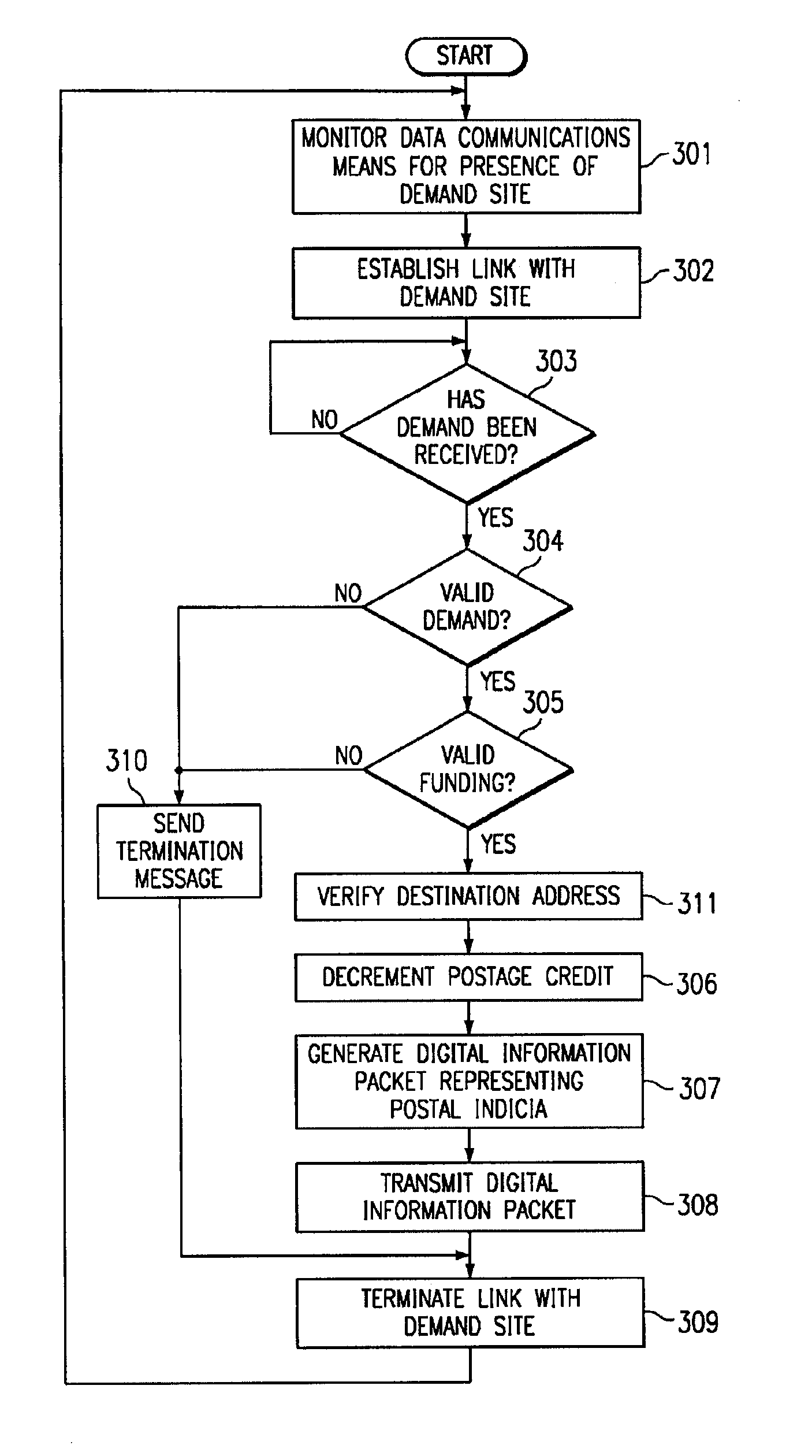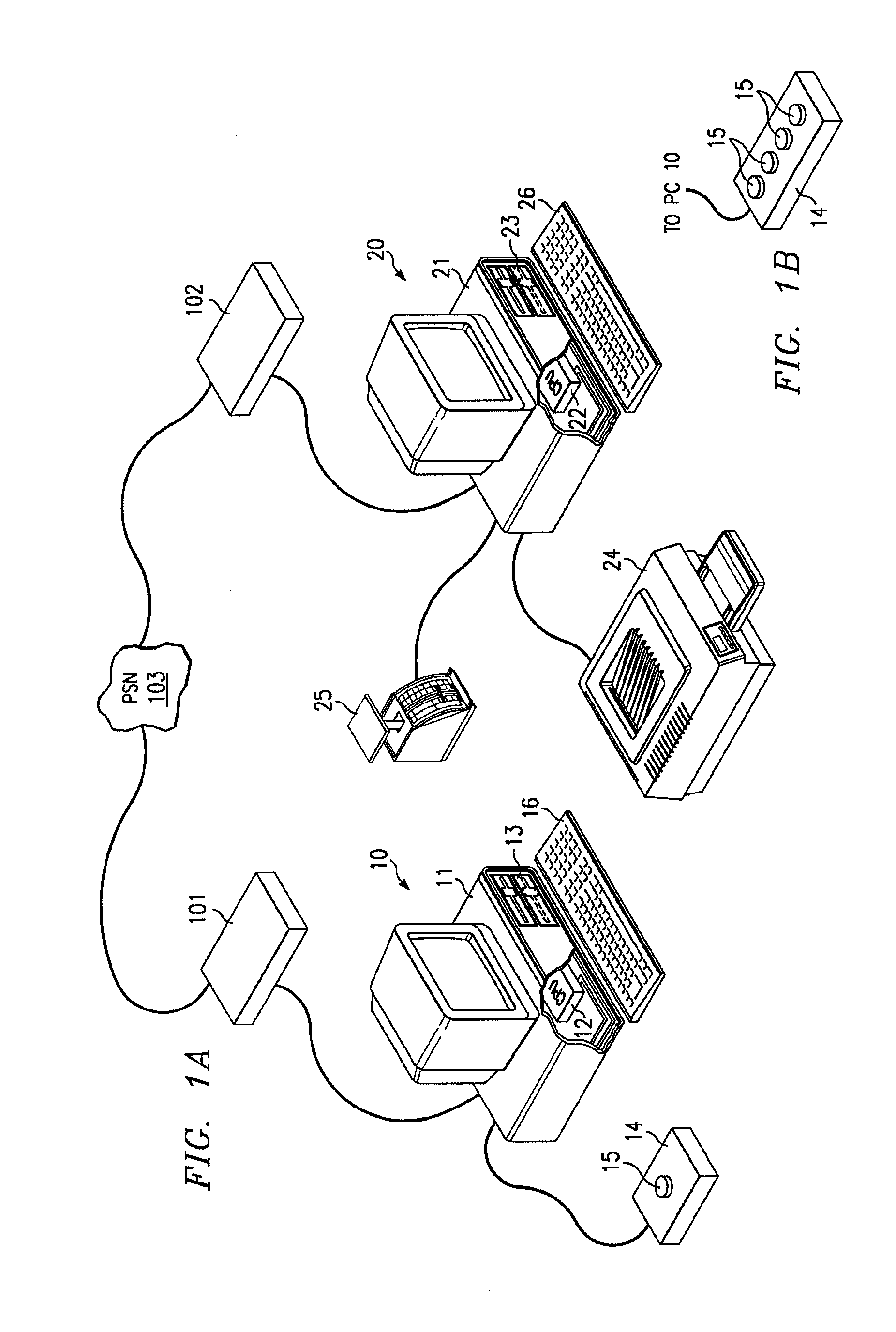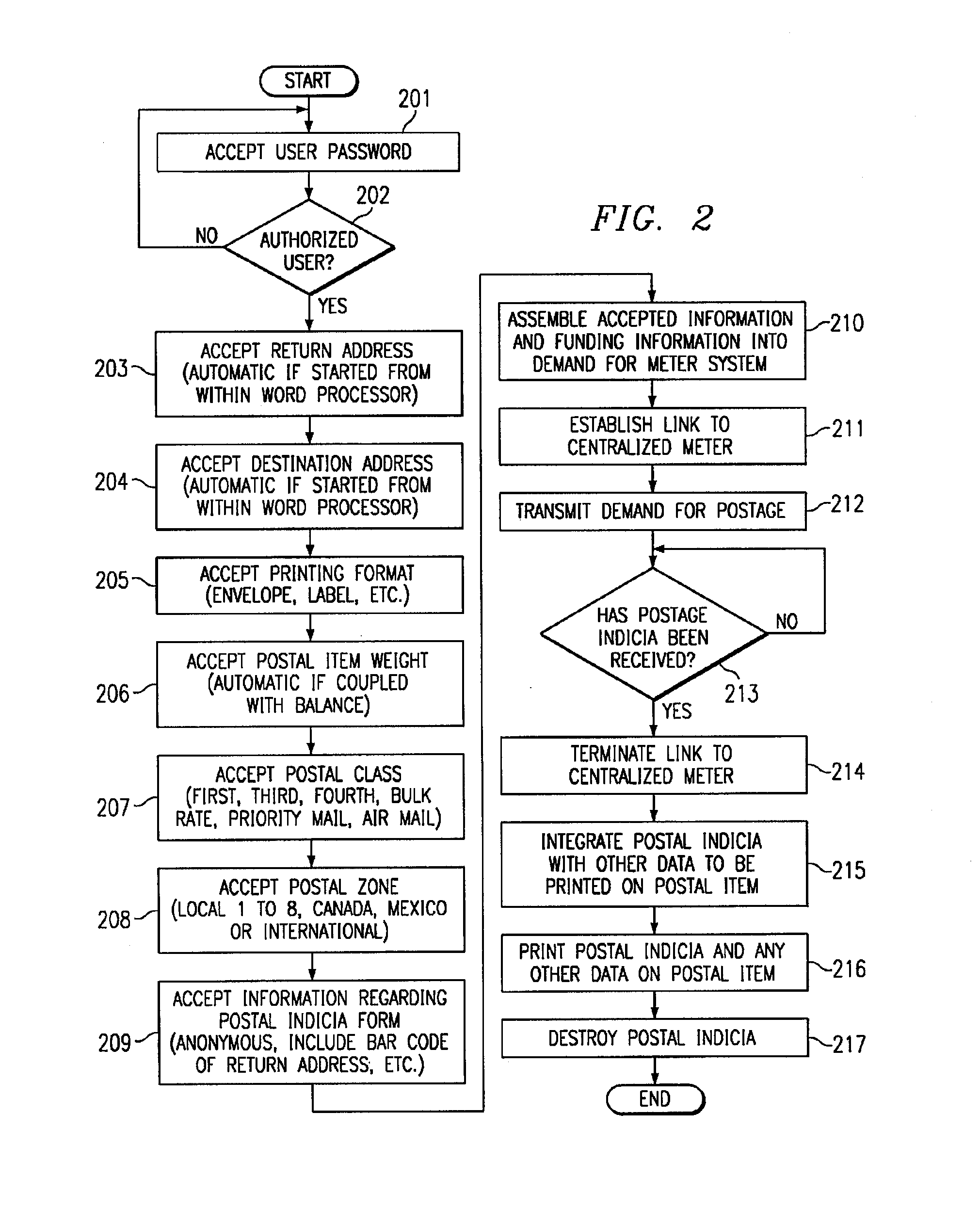System and method for remote postage metering
a postage meter and remote technology, applied in the field of postage metering system, can solve the problems of inconvenient and efficient postage meter residing in the office, inability to purchase postage meter, and expense year after year, so as to save user money on postage, reduce user involvement, and reduce the effect of postag
- Summary
- Abstract
- Description
- Claims
- Application Information
AI Technical Summary
Benefits of technology
Problems solved by technology
Method used
Image
Examples
Embodiment Construction
[0032]The present invention allows an individual to purchase a desired amount of postage at a location remote from a postal metering device, such postage being electronically transmitted to the individual nearly instantaneously upon demand. In a preferred embodiment the user invokes a first processor-based system (PC) to request and receive postage via a program, hereinafter referred to as the “Demand” program, stored on the first PC. The Demand program requests input from the user, coupled devices, or processes about the weight of the item to be mailed, the destination address, etc. The Demand program utilizes the input information to calculate the amount of desired postage for an item to be mailed. A demand for postage is then made to a remote metering system. This postage is to be subsequently printed by the first PC on an envelope, label or letter through a printer or special purpose label maker coupled to the first PC.
[0033]Although referred to herein as the Demand program, it ...
PUM
 Login to View More
Login to View More Abstract
Description
Claims
Application Information
 Login to View More
Login to View More - R&D
- Intellectual Property
- Life Sciences
- Materials
- Tech Scout
- Unparalleled Data Quality
- Higher Quality Content
- 60% Fewer Hallucinations
Browse by: Latest US Patents, China's latest patents, Technical Efficacy Thesaurus, Application Domain, Technology Topic, Popular Technical Reports.
© 2025 PatSnap. All rights reserved.Legal|Privacy policy|Modern Slavery Act Transparency Statement|Sitemap|About US| Contact US: help@patsnap.com



